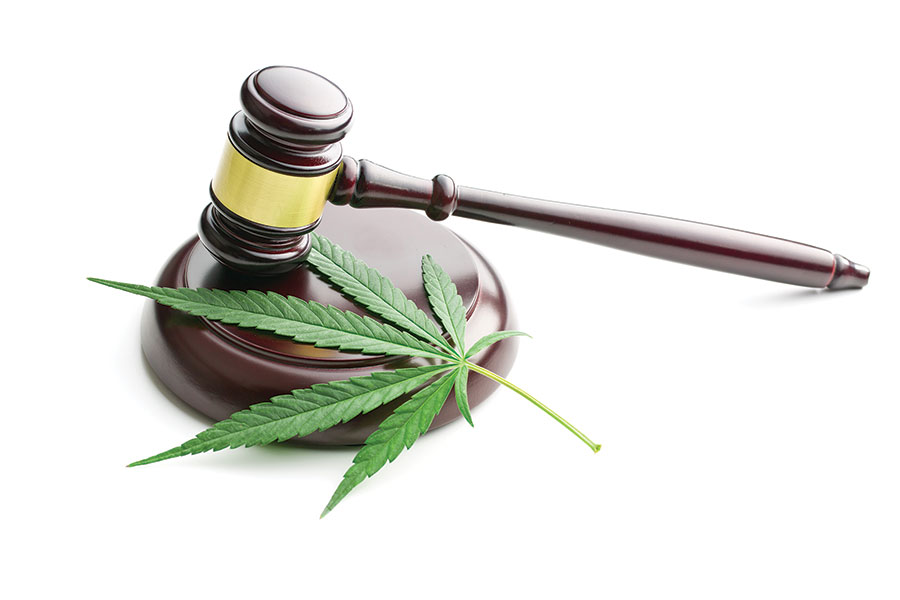A significant portion of my practice is dedicated to providing patients and entrepreneurs with legal advice regarding Nevada’s complex marijuana laws and regulations. Unfortunately, there is still a lot of confusion regarding marijuana laws due to the contradiction between state and federal law. While Nevada state law, and the laws of several other states, allows for the use of marijuana for recreational and medical purposes, marijuana remains illegal under the Controlled Substances Act. See, 21 U.S.C. 812. The federal government does not recognize the medical use of marijuana nor does it recognize state laws that contradict the federal prohibition.
I am often asked how something can be legal under state law when it is illegal under federal law; the answer is rooted in the very foundation of our nation. Without getting too deep into a history lesson, the United States of America is a republic, not a democracy. Through the concept of “Federalism,” our republic is made up of 50 state governments and the Federal Government of the United States of America.
Historically, most governmental power was vested in the states, but in the latter part of the 19th century (following the Civil War) our nation saw an unprecedented shift in power to the Federal Government at the expense of the states. Federal law trumps state law pursuant to the supremacy clause of the United States Constitution; federal authorities are under no obligation to recognize a medical marijuana patient card or any other state-issued certification allowing someone to possess, distribute, or produce marijuana. See, U.S. Const. art. VI cl. 2.
It is also important to understand that states are not obligated to respect the laws of other states with regard to marijuana. For example, if you buy marijuana in Colorado and travel with it to Utah, law enforcement in Utah can arrest you for violating Utah state law.
Legal Risks for Marijuana Users
Because marijuana is illegal under federal law, and the laws of several other jurisdictions, recreational users and patients need to understand that they are taking a risk. The most obvious risk is the potential for criminal prosecution. Marijuana is unquestionably illegal under federal law and is subject to severe criminal penalties. The cultivation, possession and distribution of marijuana could lead to long prison terms and severe fines if the federal government decided to prosecute you.
While it is relatively unlikely that the federal government would prosecute a low level recreational or medical user, it is still legally possible. Most recreational or medical users are unlikely to come into contact with law enforcement simply for buying or using marijuana, but users need to understand that there are some instances where contact with federal law enforcement is more likely (for example, when you are on federal property). Federal law enforcement officers are under no obligation to recognize state marijuana patient cards or state laws allowing for recreational use.
Another risk for marijuana users is the threat to their Second Amendment rights. Under federal law, and the laws of several states, marijuana users may not possess firearms. 18 U.S.C § 922(g)(3) prohibits any person who is an “unlawful user of or addicted to” any controlled substance, as defined by section 102 of the Controlled Substances Act (21 U.S.C. 802), from possessing firearms or ammunition. Irrespective of the federal prohibition, some individuals are quite undeterred and will continue to use marijuana and firearms no matter what their government tells them.
Veterans who use marijuana face a variety of other legal risks as well. Using marijuana can lead to convictions for driving under the influence, even if the user was not under the influence at the time they were pulled over. States like Nevada set an arbitrary limit on the amount of THC or THC Metabolite that can be present in your blood while driving. You can still get a DUI if you have enough marijuana in your system, even if you are not visibly impaired.
Marijuana use can also lead to legal problems at work. Most states do not provide protection for employees who are found to have marijuana in their systems. Thus, if you are found to be using marijuana, you could risk being denied employment, or be terminated from your job, and you will have very little recourse.
A very sad issue that I see far too often involves marijuana use and child custody. I am often contacted by individuals who are marijuana users going through child custody disputes with their former partners. Because marijuana is federally illegal, the non-user parent has often used the other parent’s marijuana use against them in court. I have seen judges place restrictions on the marijuana using parent, such as supervised visits and prohibitions on driving the child. This often places marijuana patients in the painful dilemma of choosing between the treatment that their doctors advised them of and spending time with their children (not to mention the significant costs in attorney fees and time).
Conclusion
Fortunately, things are not all gloom and doom. Marijuana use is gaining wider acceptance. The number of state and local jurisdictions legalizing marijuana for medical or recreational use increases almost every year. There is even progress at the federal level with regard to studies for marijuana as a treatment for certain ailments such as PTSD. Federal lawmakers and bureaucrats have expressed support for allowing veterans to use marijuana as a treatment through the Department of Veterans Affairs.
While this progress is encouraging, the legal risks associated with marijuana use will not be alleviated until we have real change at the federal level. Veterans and their families who support marijuana use need to be politically active; contact your federal representatives and let them hear your voices. Until we have real reform of our marijuana laws at a federal level, veterans who use marijuana will still be subject to legal risks.

